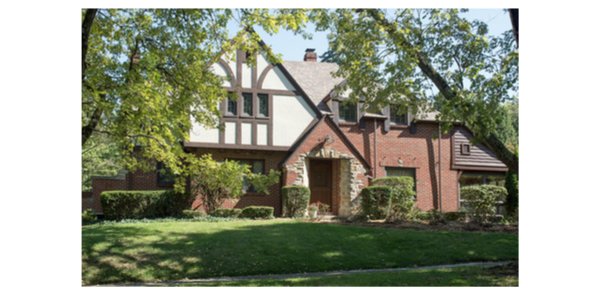Declining Term Insurance

Protecting your home and family is a top priority for many of us. And when it comes to safeguarding your most significant investment – your home – declining term insurance, also known as decreasing term life insurance, can be a valuable tool.
We’ll review what declining term insurance is, how it works, and provide some helpful tips on buying this type of coverage.
Whether you're a first-time homeowner or simply looking to protect your family's future, understanding declining term insurance is essential.
What is Declining Term Insurance?
Declining term insurance is a type of life insurance policy specifically designed to provide financial protection for homeowners and their families. Unlike traditional life insurance policies that offer a fixed death benefit, the coverage amount in declining term insurance decreases over time.
Usually, the amount of insurance
provided by your policy declines each year you are insured. This unique feature
makes it an ideal choice for individuals who want to ensure their mortgage loan
is paid off in case of an untimely death. In essence, it is a specialized form
of life insurance protection tailored to protect your home and your loved ones
from the financial burden of an outstanding mortgage loan should you die.
How Does Declining Term Insurance Work?
To grasp the concept of declining term insurance, let's break down how it works:
- Initial Coverage Amount: When you purchase a declining term insurance policy, you specify the initial coverage amount. This amount is usually equivalent to your outstanding mortgage loan balance at the time of purchase.
- Coverage Decreases Over Time: Here's the unique part: the coverage amount decreases over the life of the policy. Typically, it declines in sync with your mortgage balance. As you continue to make mortgage payments, the policy's coverage amount decreases proportionally.
- Mortgage Protection: The primary purpose of declining term insurance is to ensure your mortgage loan is paid off if you were to pass away during the policy's term. This means your family won't have to worry about the burden of the mortgage, allowing them to stay in their home without financial stress.
- Premiums Stay Steady: While the coverage amount decreases, your premiums remain constant throughout the policy's term. This predictable cost structure is beneficial for budget-conscious homeowners.
- Term Length: Declining term insurance is usually offered in terms that align with the length of your mortgage. It's common to choose a term of 15, 20, 25, or 30 years, depending on your mortgage's duration.
Tips on Buying Declining Term Insurance
Now that you understand the basics of declining term life policies, here are some useful tips for buying this type of coverage:
- Assess Your Mortgage: Before purchasing declining term insurance, assess your outstanding mortgage loan. Ensure you choose a coverage amount that matches your mortgage balance, including any expected future increases due to interest.
- Compare Quotes: Just like any insurance policy, it's wise to obtain quotes from different insurers. Compare rates and terms to find the best deal that suits your needs and budget.
- Understand the Policy Term: Be clear on how long you want the policy to last. Match the term of the policy to the remaining duration of your mortgage. This ensures that your mortgage will be fully protected.
- Consider Additional Coverage: While the primary purpose of declining term insurance is mortgage protection, you can also explore adding riders or additional policies to cover other financial needs, like income replacement for your family.
- Review the Insurer's Reputation: Research the insurance company's reputation and financial stability. You want to ensure they will be there to honor the policy if the need arises.
Pros and Cons of Declining Term Insurance
Let's examine the pros and cons of declining term insurance to help you make an informed decision:
Pros:
- Mortgage Protection: The policy's primary benefit is protecting your home and family by paying off your mortgage if you pass away.
- Steady Premiums: Your premiums stay the same throughout the policy's term, making it easy to budget for.
- Affordability: Declining term insurance is often more affordable than traditional life insurance policies, making it budget-friendly for many homeowners.
- Simplicity: It's a straightforward life insurance product with a specific purpose, making it easy to understand.
Cons:
- Coverage Decreases: The decreasing coverage may not provide additional financial support for your family's other needs.
- No Cash Value: Unlike some permanent life insurance policies, declining term insurance does not accumulate cash value over time.
- Limited Flexibility: It's tailored for mortgage protection and may not cover other aspects of your financial life.
Summary
Declining term insurance, or decreasing term life insurance, is a valuable tool to protect your home and family. It's designed to ensure your mortgage is paid off if you were to pass away during the policy's term.
By following the tips mentioned above, you can make an informed decision when purchasing this type of insurance. Remember that while it may not provide comprehensive coverage, it serves as a crucial safety net for your most significant investment – your home. So, if you're a homeowner looking to secure your family's future and safeguard your home, declining term insurance is definitely worth considering.
Term Life Insurance Quotes
Top Pick – JRC Insurance Group
JRC Insurance Group helps you shop, compare and save on life insurance. Regardless of your age or health background, we'll shop our 40+ insurance companies and find you affordable life insurance you need to protect your family and fit your budget. Compare the best life insurance rates for savings up to 73%. Get Your FREE Quote.
Disclosure: Compensated Affiliate